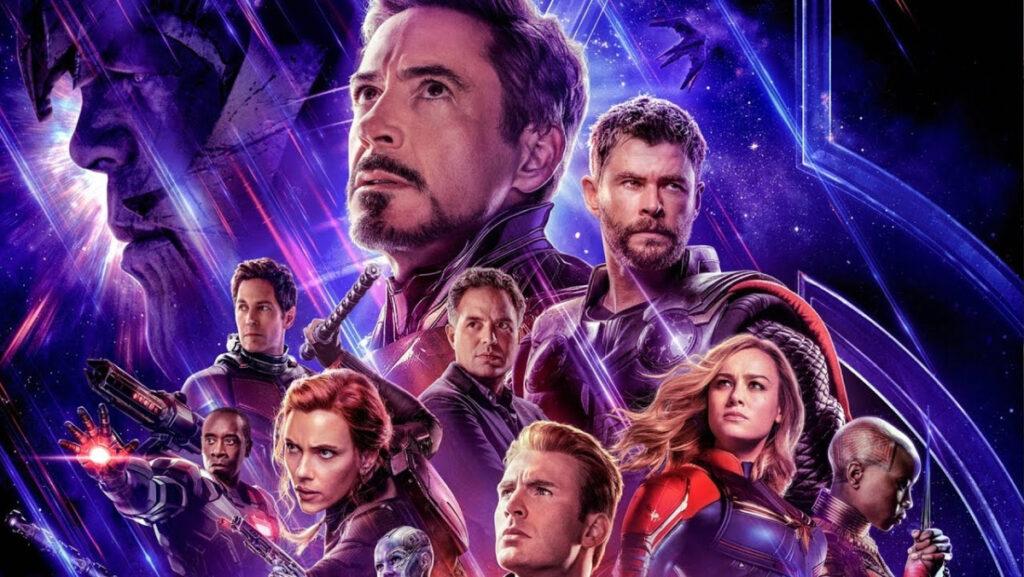For over 20 years, superheroes have ruled cinemas. There was a time only a few years ago when if a new Marvel Studios film was hitting theaters, it was essentially guaranteed to cross the $1 billion mark at the worldwide box office.
When “Avengers: Endgame” became the second highest-grossing movie of all time, making nearly $2.8 billion by the end of its theatrical run, it seemed as though not even the sky could limit the gargantuan power of the comic book movie genre. However, it is only when something is seen as being too big to fail that it can be knocked down a few pegs. This is exactly what seems to be happening in the current era of supposed superhero fatigue.
In January 2023, Marvel Studios President Kevin Feige was featured on “The Movie Business Podcast,” where he discussed why he does not believe movie-going audiences are becoming tired of superhero cinema and storytelling. Feige compared comic book films to films like “Gone with the Wind” in that they are both adapted from written material. He said that because audiences are not feeling fatigued from watching movies that are adapted from novels, they would not feel fatigued from watching movies that are adapted from 80 years worth of comic book storytelling. The difference here that Feige does not seem to grasp is that most novels do not tell relatively similar stories over and over again. Movies that are adapted from books do not follow a predictable formula unless it is directly a story that has already been told before.
Superhero comic books and superhero movies are extremely formulaic. A person can read a comic book or watch a comic book movie fully aware that the story is going to end with the heroes beating the brand-new villain of the week without almost any consequences. Even if a story does not end this way, there is almost nothing Marvel can do at this point to shock audiences in the same way it did at the end of “Avengers: Infinity War.” With what Marvel has currently set up with their latest saga of films following “Avengers: Endgame,” even if the next “Avengers” film ends with a shocking cliffhanger that will lead into the subsequent movie, it is bound to not have the same type of pop cultural impact that “Avengers: Infinity War” had.
Aside from a few standout entries like “Shang-Chi and the Legend of the Ten Rings” and “Spider-Man: No Way Home,” it has felt like Marvel has been losing its magic. Projects released over the last two years like “Thor: Love and Thunder,” “Eternals,” “Ant-Man and the Wasp: Quantumania” and more have felt lower in quality than what audiences have received in the past.
“Ant-Man and the Wasp: Quantumania” in particular demonstrates how audiences may be losing faith in the Marvel brand. Not only is the film the second-ever Marvel Studios movie to receive a rotten rating on Rotten Tomatoes after “Eternals,” but it also did extremely poorly at the box office. After scoring over $100 million at the box office during its opening weekend and setting a trilogy record, the film suffered a 69% drop in ticket sales during its second theatrical weekend, setting another record for the biggest second-weekend drop in the franchise’s history.
Although “Ant-Man and the Wasp: Quantumania” received an 83% audience rating on Rotten Tomatoes, the chatter about the film online has skewed largely negative. Many have cited issues with the film’s plot, cringe-inducing humor, as well as awful visual effects in their disdain for the movie. The film left many fans in a state of bewilderment in terms of how the franchise could stoop as low as it did in various aspects. It seems like even the film’s two post-credits scenes were not enough to keep many fans excited for upcoming projects featuring the villain Kang the Conqueror. When someone takes into consideration that two of these upcoming projects are “Avengers” films, this becomes even more concerning.
Luckily, Marvel has until May 2025 when “Avengers: The Kang Dynasty” is scheduled to be released to get fans fully back on board. Upcoming projects like the Disney+ series “Secret Invasion” and the Captain Marvel sequel, “The Marvels,” look like they both have the potential to bring back the beloved Marvel magic. However, it is James Gunn’s “Guardians of the Galaxy: Volume 3” that has the most pressure to be positively received by both critics and fans.
The “Guardians of the Galaxy” films are some of the most beloved in Marvel’s entire catalog. Writer-director James Gunn is also one of the most talented filmmakers that Marvel has ever worked with. If there is anyone who can stave off any threat of superhero fatigue, it is Gunn. After all, he is one of the new heads of DC Studios as well. Gunn has embraced the idea of superhero fatigue rather than acting like it does not and will never exist. In his new position at DC, he has said that he plans to create emotionally grounded character-focused stories that will push the genre forward, maintaining audiences’ interest. Ultimately, in the last few years, it has been DC that has already been releasing some of the most creatively interesting comic book films to ever grace the big screen.
Films like “Joker,” “The Batman” and “The Suicide Squad” have felt like massive breaths of fresh air for the comic book movie genre. They are almost enough to make up for the lackluster releases that the studio has been responsible for that have aided in the superhero fatigue conversation. DC’s two latest films, “Black Adam” and “Shazam: Fury of the Gods,” have been critically panned and bombed at the box office. Because of their massive failures, DC Studios has much more riding on Gunn and his partner Peter Safran than it would have had otherwise.
It is up to their upcoming slate, along with films like the “Joker” sequel and “The Batman: Part 2,” to save DC Studios from being drowned by fans who are becoming more uninterested in the comic book movie genre with each passing lackluster film. As for Marvel, aforementioned projects like “Guardians of the Galaxy: Volume 3” and “The Marvels,” as well as Sony Pictures’ sequel to the Academy Award-winning “Spider-Man: Into the Spider-Verse,” will hopefully set the brand back on track and prevent superhero cinema from getting one step closer to going the way of the western.






